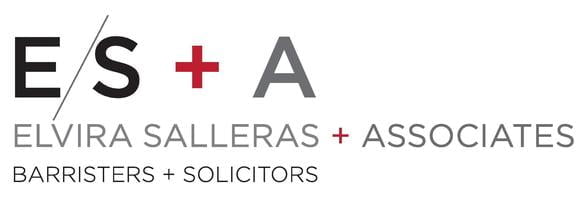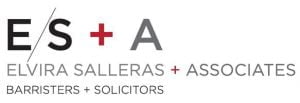By Adewunmi Adesina
- Introduction
Shares are a fairly commonplace term in corporate law practice. Hence, it is imperative for anyone remotely involved in the operations of company or a prospective investor to be aware of the nitty gritty concerning them. This article seeks to cater to this need by providing an insight into shares and what they represent under Nigerian law and would entail an overview of the:
- Meaning of shares;
- Classes of shares;
- Persons qualified to take up shares;
- Rights of shareholders; and
- Obligations of shareholders.
- Meaning of shares
A share is the legal interest in the authorized share capital of a company[1] and is usually expressed in monetary terms[2]. In practice, shares may be paid for in cash or kind e.g. by providing certain services or investing equipment in a company.
- Classes of shares
Subject to its Articles of Association (the Articles), a company may issue different classes of shares with rights or restrictions[1].
This section will briefly discuss three of the most popular classes:
- Ordinary shares-These carry no special rights or restrictions and rank lower in priority compared to preference shares (e.g. in terms of distribution of dividends[2] and proceeds from liquation following winding up). Nonetheless, they entitle the shareholder to one voting right per share pursuant to section 116 of the Companies and Allied Matters Act, 2004 (as amended, “CAMA”).
- Preference shares-These are preferred because of the priority attached to them as explained in Section 3(I) above. Additionally, they may entitle a shareholder to more than one vote per share subject to the Articles and section 143 of CAMA.
- Deferred shares-Also known as Founders shares, they entitle a shareholder to a portion of the company’s profits after payment of fixed dividends on ordinary shares[1]. For dividends distribution, deferred shares rank first in priority before ordinary and preference shares[2].
- Persons qualified to take up shares
Almost every person or legal entity including non-Nigerians[1] can own shares under Nigerian law. Nonetheless, it is worthy to note the following category of persons who are either restricted or prohibited from owning shares[2]:
- A person below 18 years old except the company already has two other eligible shareholders;
- A person of unsound mind as declared by a competent court in Nigeria or elsewhere;
- An undischarged bankrupt;
- A person disqualified from being a director of a company under section 254 of CAMA due to a conviction for fraud.
A shareholder is only recognized as a member if the shareholder either subscribed to the company’s memorandum of association at the point of incorporation or subsequently has their name entered in the company’s register of members[3]. This distinction is important as section 41(1) of CAMA, which provides the foundation for the rights enjoyed by shareholders, refers to “members” and not “shareholders”. It is therefore important that every shareholder confirms that their names are on the company’s register of members.
- Rights of shareholders
As stated in the preceding section, section 41(1) of CAMA is the general provision on the subject of rights of shareholders[1]. It provides thus:
“Subject to the provisions of this Act, the memorandum and articles, when registered, shall have the effect of a contract under seal between the company and its members and officers and between the members and officers themselves whereby they agree to observe and perform the provisions of the memorandum and articles, as altered from time to time in so far as they relate to the company, members, or officers as such”
Based on the above, shareholders have the right to:
- Earn dividends: Dividend is the payment made out of a company’s profits to its shareholders[2]. Accordingly, this right only arises when a company declares dividends[3]. Where the company defaults, they become special debts for which the shareholder may institute action for recovery within 12 years from the declaration date[4].
- Exercise of proprietary rights over owned shares: Shares constitute part of a shareholders’ properties. They can therefore deal with their shares as they would other personal properties via transfer or otherwise subject to the provisions of the company’s Articles[5].
- Receive meeting notices, attend and vote at meetings: Shareholders are entitled to receive notices of all general meetings[6] and vote at same. Section 116(1) of CAMA guarantees the right to at least one vote per share. With this voting right, shareholders are able to decide on key issues like appointment and removal of directors, approval for transfer of shares, amongst others.
- Apply for a court ordered meeting of the company: Section 223(1) of CAMA confers this right to any shareholder who is entitled to attend and vote at such meeting. It should be noted that this right only arises where it is impractical for the company to call for meetings[7].
- Institute action on company’s behalf: Sections 300-303 entitle minority shareholders to institute action in court (either in the shareholder’s name, on behalf of other shareholders or the company) for protection against illegal and oppressive conducts against them[8]. This is an exception to the general rule in Foss v. Harbottle[9] which identifies the company as the proper plaintiff to institute an action where it wishes to seek redress for any wrong suffered by it. However, shareholders need to seek leave of court before instituting an action in the company’s name or on its behalf[10].
- Participate in sharing of the liquidated assets of the company after winding up: This is subject to the order of priority listed in section 494 of CAMA.
Other rights of shareholders include the right to:
- Receive copies of the company’s memorandum and articles of association[11] upon payment of expenses for same;
- Inspect the company’s register of members[12],books of accounts and accounting records[13];
- Receive share certificates except this is contrary to the conditions upon which the shares were issued[14]; and any other right enshrined in the Articles[15].
- Obligations of Shareholders
They include:
- Paying for shares subscribed to: This arises when the company makes calls for payment for shares which have not been fully paid[16] failing which the shareholder could be forced to forfeit the shares in line with section 140 of CAMA.
- Contributing towards winding up purposes: In the event of winding up, shareholders are obliged to pay any outstanding dues on shares they own[17].
- Disclosing substantial shareholding in a public company (PC): A person who can exercise at least 10% of the unrestricted voting rights at any general meeting of a PC is required to notify the PC of this development. The notice should state the shareholder’s name, address and the full particulars of shares held by the shareholder or their nominee[18]. The notice should be given within 14 days after the shareholder becomes aware of this development. Similarly, the shareholder is also obliged to notify the company within 14 days of their ceasing to be a substantial shareholder[19].
- Confirmation of remittance of withholding tax payable on dividends: Companies are obliged to deduct 10% withholding tax (WHT) on dividends and remit same to the Federal Inland Revenue Service[20] (FIRS). Thus, shareholders should confirm the remittance status of any applicable WHT and request for credit notes issued by the FIRS, in evidence, from the company.
Other obligations include the obligation to:
- Notify the company of any change in the shareholder’s name, address, mandate or signature[21]. This would assist the company in modifying its records and filing any necessary return at the Corporate Affairs Commission;
- Keeping safe custody and proper records of all documentation in connection to shares owned e.g. share certificates, copies of share transfer documents. This would minimize the risk of such documents being used for fraudulent transactions[22];
- Actively participate in general meetings[23]; and
- Report any illegal activity of the company to the relevant authorities[24].
- Conclusion
From the foregoing, it is obvious that shares come with various rights and obligations. It is therefore prudent that prospective shareholders bear these in mind before taking up shares in a company.
[1]https://www.researchgate.net/publication/332291667_SHAREHOLDERS’_RIGHTS_OBLIGATIONS_UNDER_THE_COMPANIES_AND_ALLIED_MATTERS_ACT.
[2] Kotoye v Saraki (1994) N.W.L.R (Pt 357) 414 at 467.
[3] Section 385, Companies and Allied Matters Act, 2004 (as amended).
[4] Section 385, Companies and Allied Matters Act, 2004 (as amended). See also Attorney General Federation v. Iyewere (1986) 4 NWLR (pt. 37) 659.
[5] Section 115, Companies and Allied Matters Act, 2004 (as amended).
[6] Section 219 (1), Companies and Allied Matters Act, 2004 (as amended).
[7] Section 223 (1), Companies and Allied Matters Act, 2004 (as amended). See also Re Wada (2000) FWLR (pt. 18) 214 at 229-300.
[8]https://www.researchgate.net/publication/332291667_SHAREHOLDERS’_RIGHTS_OBLIGATIONS_UNDER_THE_COMPANIES_AND_ALLIED_MATTERS_ACT.This position was confirmed in Shell Petroleum Development Company of Nigeria Ltd v. Nwawka. (2000) JELR 55819 (CA).
[9] (1843) 67 ER 189.
[10]Section 303 (1), Companies and Allied Matters Act, 2004 (as amended).
[11] D Nelson, ‘The Dilemma of the Shareholders under the Nigerian Company Law’ (2015) Journal of Law, Policy and Globalization ISSN 2224-3259. See Section 42, Companies and Allied Matters Act, 2004 (as amended).
[12] D Nelson, ‘The Dilemma of the Shareholders under the Nigerian Company Law’ (2015) Journal of Law, Policy and Globalization ISSN 2224-3259. See Section 42, Companies and Allied Matters Act, 2004 (as amended).
[13] ‘We Invest in Shares: Know Your Rights as a Shareholder’, the Securities and Exchange Commission of Nigeria.
[14] Section 146 (1), Companies and Allied Matters Act, 2004 (as amended).
[15] http://www.smartnigerianinvestor.com/basic-investing/stocks/print/the-rights-of-a-shareholder.html.
[16] Section 133 (1), Companies and Allied Matters Act, 2004 (as amended).
[17] Section 402, Companies and Allied Matters Act, 2004 (as amended).
[18] Section 95(1) & (2), Companies and Allied Matters Act, 2004 (as amended).
[19] Section 96, Companies and Allied Matters Act, 2004 (as amended).
[20] Section 80, Companies Income Tax Act, 2004 (as amended).
[21]https://www.researchgate.net/publication/332291667_SHAREHOLDERS’_RIGHTS_OBLIGATIONS_UNDER_THE_COMPANIES_AND_ALLIED_MATTERS_ACT.
[22]https://www.researchgate.net/publication/332291667_SHAREHOLDERS’_RIGHTS_OBLIGATIONS_UNDER_THE_COMPANIES_AND_ALLIED_MATTERS_ACT.
[23] ‘We Invest in Shares: Know Your Rights as a Shareholder’, the Securities and Exchange Commission of Nigeria.
[24] ‘We Invest in Shares: Know Your Rights as a Shareholder’, the Securities and Exchange Commission of Nigeria.
[1] Subject to the provision of any enactment regulating the rights and capacity of aliens to undertake or participate in trade or business in Nigeria e.g. the requirement for business permit. Section 20(4), Companies and Allied Matters Act, 2004 (as amended).
[2] Section 20, Companies and Allied Matters Act, 2004 (as amended).
[3] Section 79, Companies and Allied Matters Act, 2004 (as amended).
[1] https://sidebrief.com/shareholders-in-nigeria/.
[2] https://accountantskills.com/what-is-deferred-shares/.
[1] https://sidebrief.com/shareholders-in-nigeria/.
[2] https://sidebrief.com/shareholders-in-nigeria/.
[1] The authorized minimum share capital for private and public companies is ₦10,000 and ₦500,000, respectively. First Schedule to the Companies and Allied Matters Act, 2004 (as amended).



